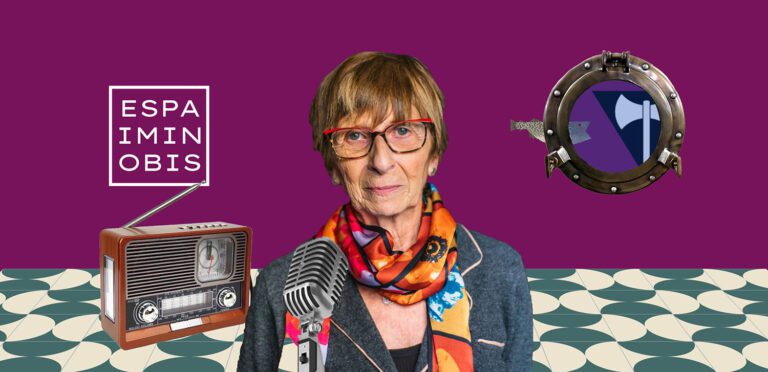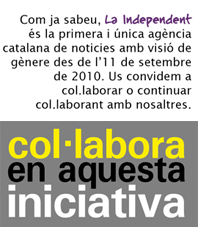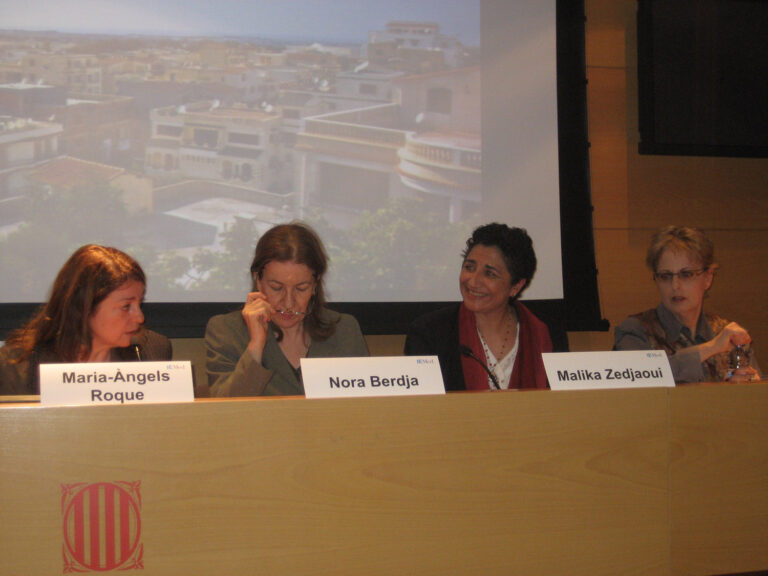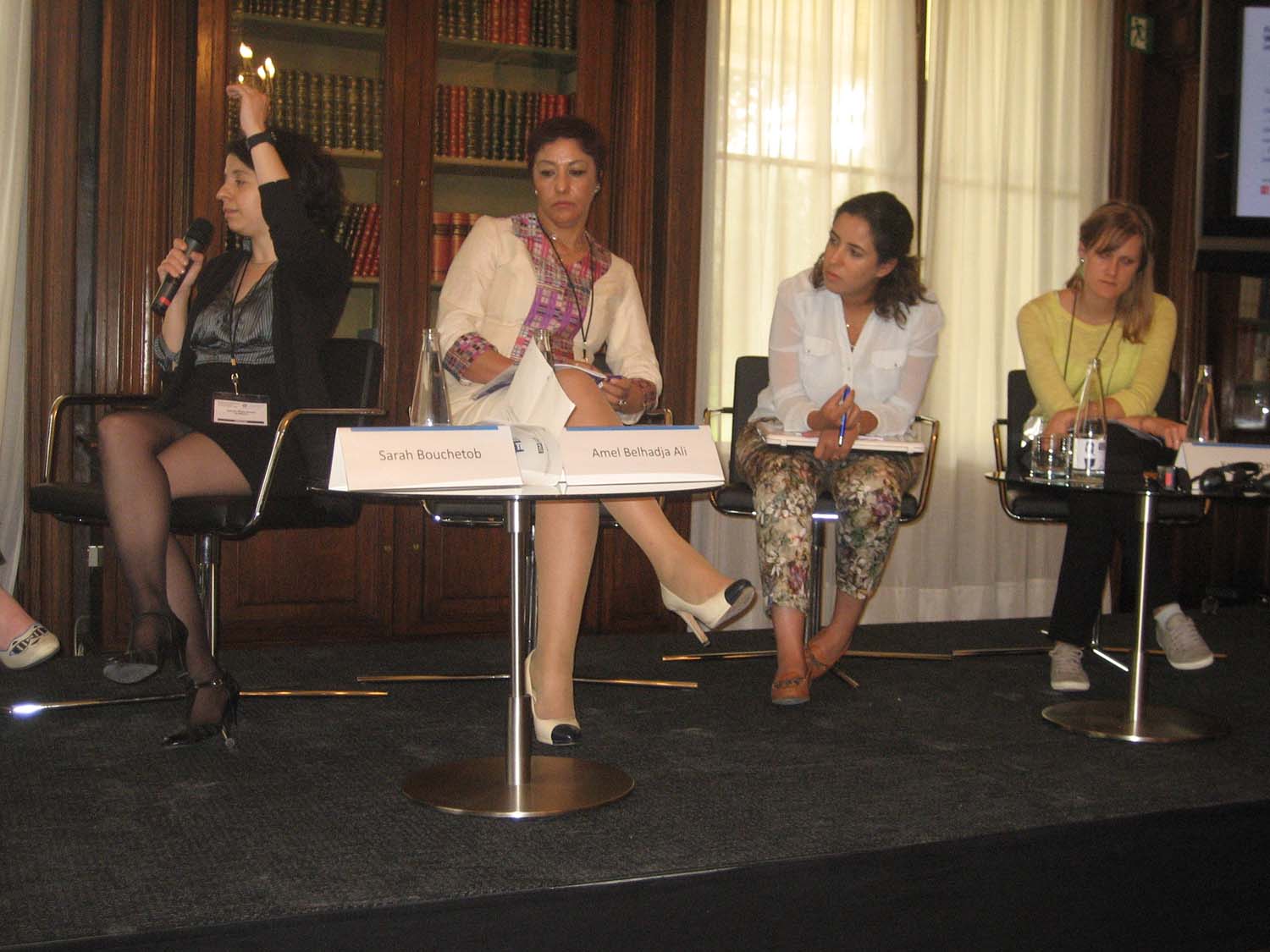
In the Southern Mediterranean, positive trends for gender equality in and through the media, which had grown over the years and blossomed during the Arab Spring, sharply reversed, with the political situation deteriorating
When considering progresses and setbacks of journalism with a gender perspective, it is important to note the kaleidoscopically complex region we cover, where the situation varies between countries, within national media and in journalists’ eyes and pens. Due to this diversity and a constantly evolving situation, progresses and setbacks are difficult to encapsulate.
It is also worth noting that the theme of reflection harbours two issues: trends of journalism with a gender perspective, which commands to examine journalistic contents (1) and the situation of women as journalists and communicators, which includes the question of working conditions (2). On both issues, trends, again, vary and can even be contradictory.
It is nonetheless safe to say – in the context of the key issue examined by this meeting, – the fight against violence towards women and promoting Women’s Human Rights – that social unrest and wars that have erupted in recent years in the Southern Mediterranean, resulting in humanitarian disasters and waves of migration, have not had – as incidental consequence – any positive impact on women’s portrayal or working conditions in the media.
Part of this complex and evolving image, is one of misery, fear, homelessness, exposure to war, social and domestic violence. Part of the reality for women reporting in the region, is higher exposure to vocational hazard and a decline or ceasing of journalistic work, particularly for women living and reporting in conflict zones.
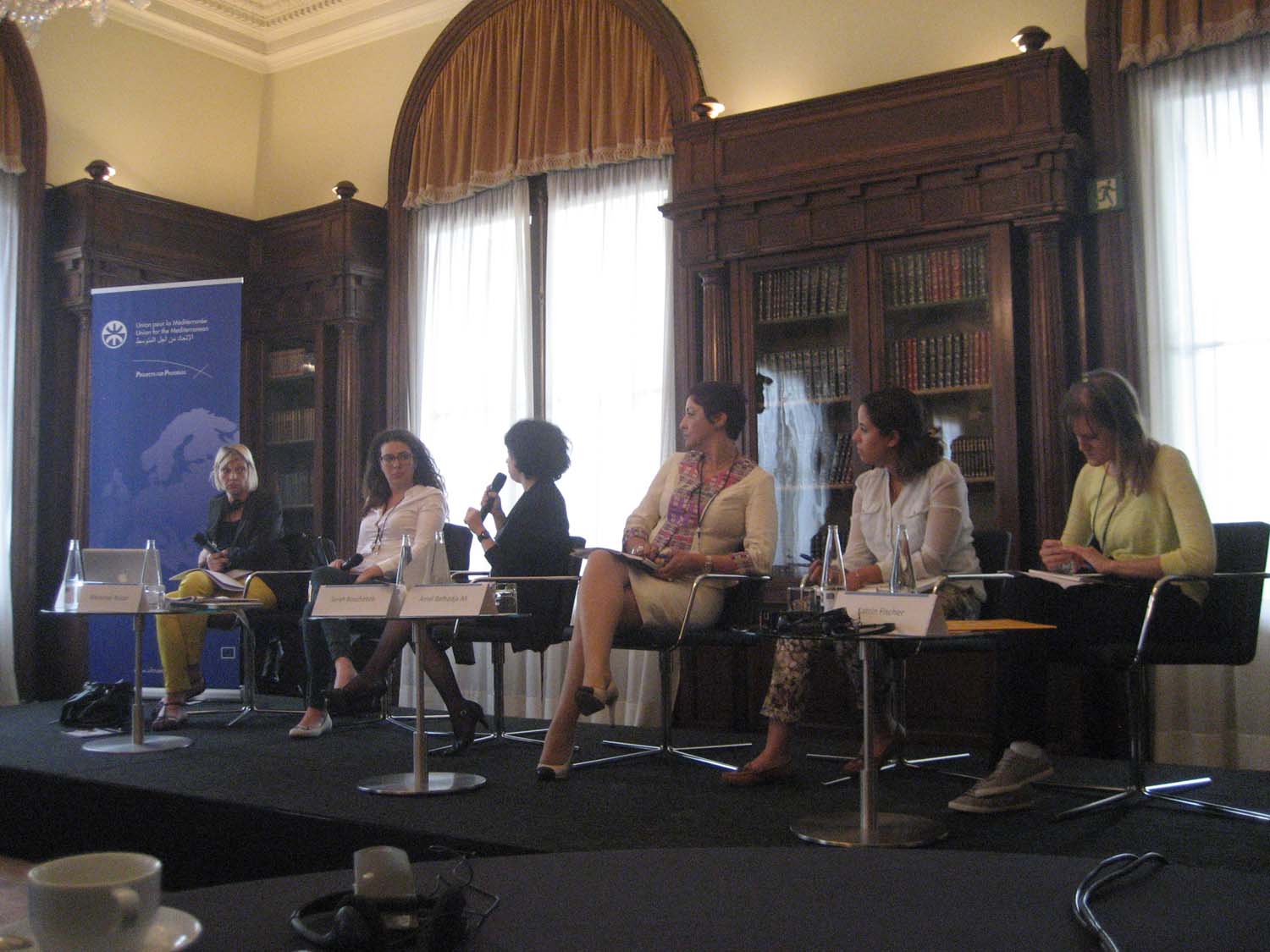
Sarah Bouchetob, al mig vestida de fosc. A dalt, 1ª a l’esquerra. Fotos Lídia Vilalta
Elsewhere in the Southern Med, positive trends for gender equality in and through the media, which had grown over the years and blossomed during the Arab Spring, sharply reversed, with the political situation deteriorating, clashes between liberal and radical movements, and a trend towards conservativeness or “cautious righteousness” taking place. Beyond, in the Mediterranean, some of the positive energy dedicated to fighting gender inequality may have been readdressed, in the face of the humanitarian crisis impacting indiscriminately men, women and children.
Despite this, the battle for women’s rights, image, voice, and working conditions continues to be led in the media, as a workplace, as pulse of society’s health, and as a platform for democratic discourse. Here, progresses can be best achieved through more solidarity and stronger networking between women; though stronger policies for gender equality in the media and proper working conditions for women journalists and communicators. The MedMedia programme has, in this context developed a comprehensive strategy with key media stakeholders in the region to strengthen or pave the way for policies that improve media’s gender equality performance.
It has also launched, on International Women’s Day, a Mediterranean initiative, titled Khabirat, Women experts in the Mediterranean, to enhance women’s contribution, as experts and sources of opinion in the media. It will establish national directories of women experts which can be used by editorial teams when looking for experts to interview, to quote or to showcase. Once established, the national directories will link to form a Mediterranean platform to promote women’s contribution as opinion and policy makers.
Senior Communications and Networking Manager MEDMEDIA*www.med-media.eu
MedMedia is an-EU funded programme whose main objective is to support media reform in the Southern Mediterranean and provide platforms for networking and exchange of expertise between media outlets, regulators, journalists’ unions, policy-makers and experts. Gender equality policies in the media are a key component of the programme.

